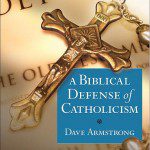Obviously, this is conditioned upon whether the request is according to the will of God or not, as the previous verse indicates (“if we ask anything according to his will he hears us”). So the seemingly absolute statement is qualified by another statement. Thus, much of 1st John, as the Gospel of John, is written in a sort of proverbial, or idealized language. E.g., 1 Jn 5:18:
We know that anyone born of God does not sin . . . (cf. 3:6, 8-9)
Of course, believers sin all the time. In proverbial literature, the intention is not absolute and all-encompassing, without exception, but rather, common-sense observation of what usually accompanies a certain state or condition. Thus, John is saying that “those in Christ do not sin,” or, more accurately, “the essence of the person in Christ is righteousness; sin is contrary to the essence of a Christian.” Thus, also, he is expressing the thought, “those who believe in Christ will be saved and will have eternal life; those who do not will not be saved.” Those are general truths, but it is much more difficult to apply them to individuals, and this is expressing something different from absolute subjective assurance of the individual. In fact, John “contradicts” 1 Jn 5:18 (above) in 1 Jn 1:8:
If we say we have no sin, we deceive ourselves, and the truth is not in us.
But in fact it is no contradiction, because proverbial literature is not meant to be interpreted in such absolute, airtight terms. In the book of Proverbs the classic example is where it says “answer the fool” in one verse, and in the very next it says, “don’t answer the fool” (i.e., different situations dictate a different response, in prudence).
I have an old Thayer’s Lexicon of the NT and here is how he defines the faith mentioned in John 5:24:
to believe and embrace what God had made known either through Christ or
concerning Christ (p. 512)
Cool.
You are claiming that Jesus didn’t mean we have instant salvation and assurance of eternal life, but Jesus whoever “believes Him who sent Me, has enternal life” What is not instant about that? Furthermore, he states they “does not come into judgment”. Why is that not assurance?
Because it has to be harmonized in some fashion with the many instances of losing faith or salvation, and urgings of vigilance.
Also I would agree to a certain extent that faith is obedient. The very first obedience we are called to is to admit that we are the wretched tax collector, we are the idolaters, we are self righteous Pharisees, and God is the righteous judge, therefore outside of Christ we are justly condemned.
Amen.
Catholics seem to take any mention of works or warnings at face value, but he promises of God are often downplayed in favor of the works and warnings. However, both statements are equally true.
That’s what I’m saying. If some of us do that (and we do), then you guys are equally guilty of committing the opposite error: downplaying works in the scheme of things.
Those who believe has eternal life and will not be condemned. Those who have done good will receive the resurrection of life. Now how do we harmonize both of these statements? Easy. Those who believe has eternal and will not be condemned are the same ones who will do good and receive the resurrection of life. Can you harmonize them better?
This is true. My point was the additional one that the so-called “assurance” mentioned in the verse about belief is conditioned upon the perseverance mentioned in the other. That’s why absolute assurance isn’t possible, simply because we don’t know the future. We don’t know if we will persevere. Only God does. We can only have a moral assurance that we are not in grave sin right now (as in Catholicism). That’s something we can know, and if Catholics avoid grave sin, then we can have every bit as much assurance of salvation as any Protestant.
. . . the John 5:24 statement is qualified by those who believe. Furthermore, this is not an isolated statement, therefore I see no reason to not take it at face value.
I’ve given you plenty.
(I cited passages in 1 Jn)
That is the beauty of letting Scripture interpret Scripture and I agree with your explanation of the above verses however, I don’t think John 5:24 really fits the analogy. As I have already said this is not an isolated statement. As a matter of fact John teaches the same thing in John 6:37-44. Paul teaches the same thing in Romans 8:30 and many other verses.
And both warn about falling away. If you can fall away, you don’t have assurance, as you don’t know the future. It’s as simple as that. Logic 0101.
So are you saying the Gospel of John is proverbial literature?
No; just this sort of statement in John. Statements that one is saved by Jesus (as the cause) are not the equivalent of an assertion of absolute assurance of salvation and eternal life. If the statement suggesting the latter in 1 John must be qualified, due to context, then it is reasonable to assume that a similar statement in John is subject to the same analysis and qualification. As you say, Scripture interprets Scripture. This can apply to context, style, and also to topic (which is the basis of systematic theology).
If so I will have to quote you when a Catholic appeals to John 6 to support the Eucharist :-)
LOL Yeah, in John 6 we find Protestants who pride themselves on their routine “literal” interpretation, suddenly becoming remarkably prone to symbolic exegesis. :-)
On the contrary I could admit the possibility of something without doing damage to my belief,
Okay, why don’t you start, then, by admitting that falling away from faith is entirely possible, and that faith and works are inevitably intertwined, as are sanctification and justification. :-)
As long as we are His children, He will work in us, with unending, fathomless mercy, but if we reject Him (i.e., spurn our status as children of God), He will turn His back on us, because He respects our freedom of choice, even to the point of letting us go our own way. I think there are a ton of verses in the Old Testament which demonstrate this principle. I looked real quick to find one and came across Isaiah 65:11-12. Apart from the many passages about falling away and apostasy, which I have mentioned in this thread and related ones, the passages in Revelation where Jesus is speaking to the churches comes to mind:
Remember then from what you have fallen, repent and do the works you did at first. If not, I will come to you and remove your lampstand from its place, unless you repent. (Rev 2:5; RSV; cf. 2:19-23)
He who conquers shall be clad thus in white garments, and I will not blot his name out of the book of life . . . (Rev 3:5; thus implying that being blotted out of the book of life is possible)
So, because you are lukewarm, and neither cold nor hot, I will spew you out of my mouth. (Rev 3:16).
*****
Meta Description: Many evangelicals & all orthodox Calvinists believe that one can be absolutely assured of salvation. The Bible, OTOH, teaches a moral assurance.
Meta Keywords: appropriation of grace, Catholic soteriology, co-laborers with God, cooperation with God’s grace, faith, Faith Alone, grace, grace alone, heaven, hope, imputed justification, infused justification, Justification, eternal security, merit, moral assurance of salvation, perseverance of the saints, Salvation, sanctification, soteriology, synergy













